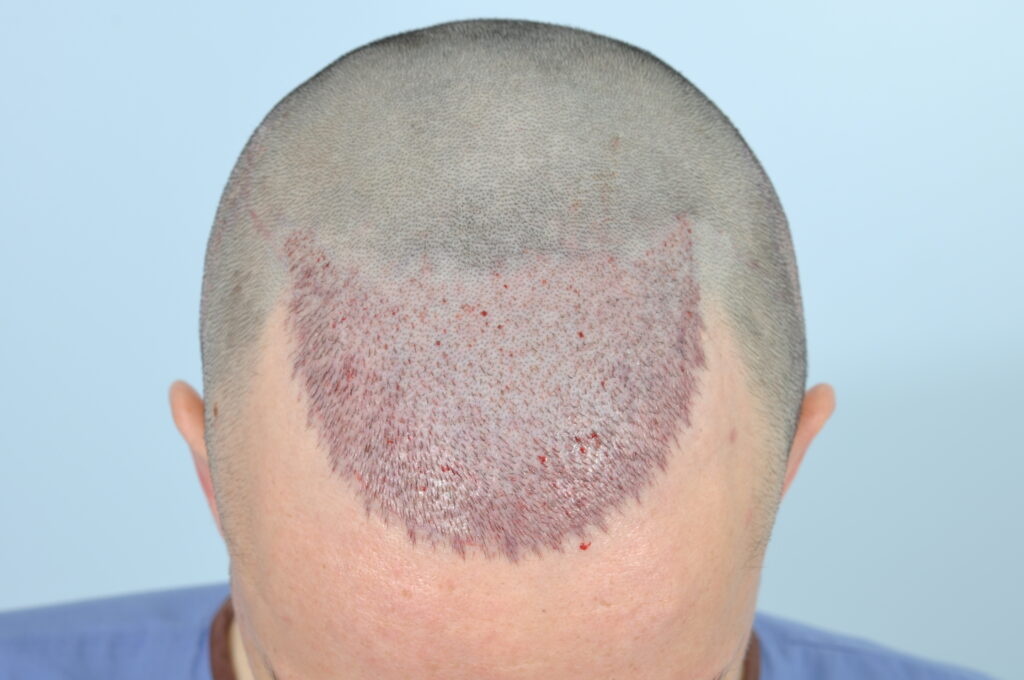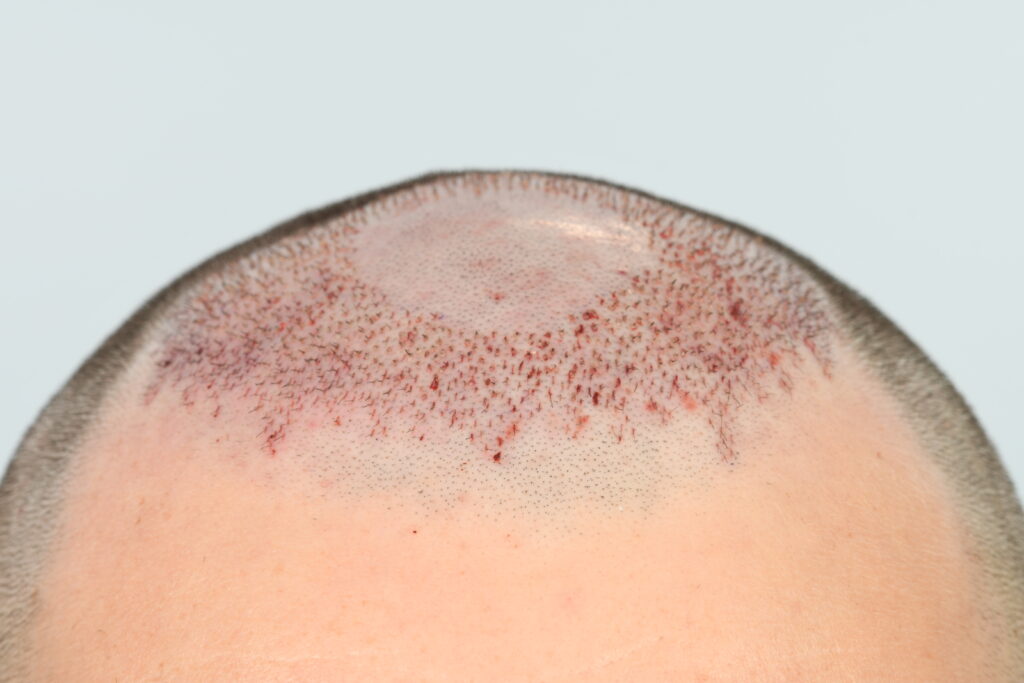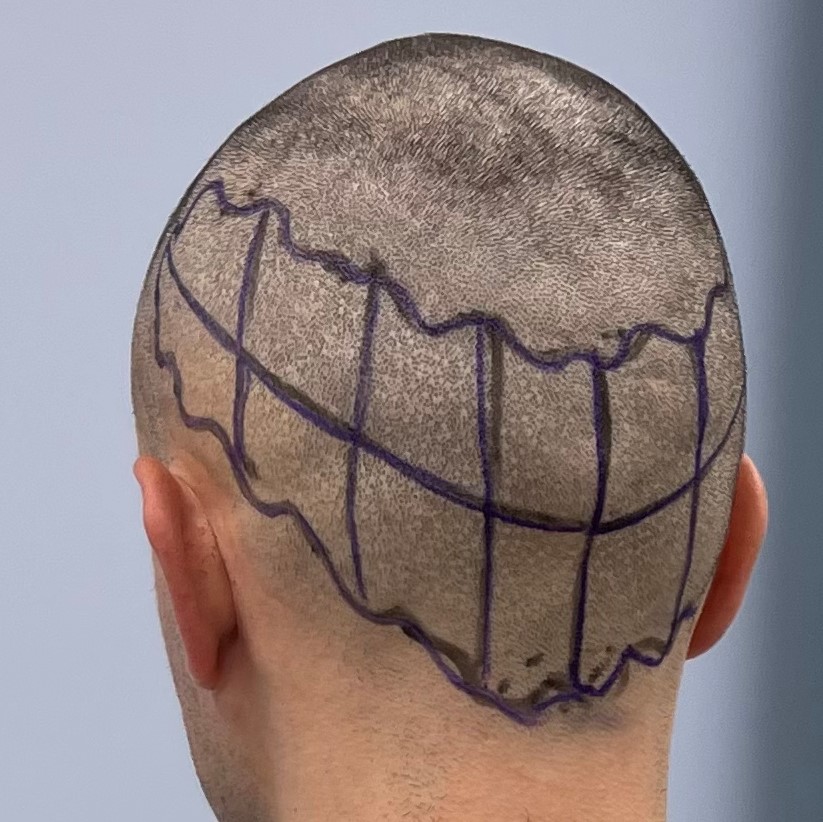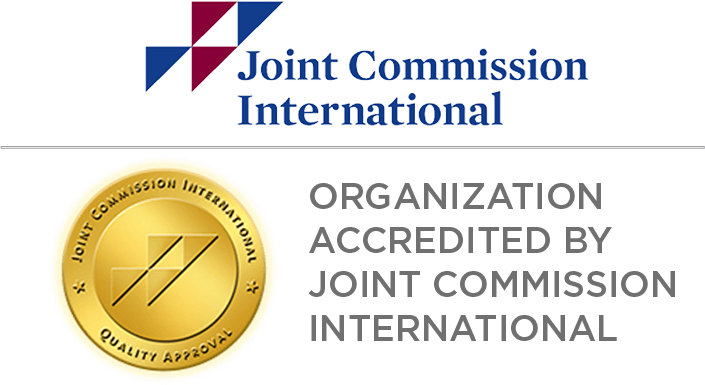The volume of patients travelling to Turkey and beyond for hair transplantation and other procedures has increased since the end of Covid travel restrictions. With many people feeling the effects of inflation and the increased cost of living, the lure of a cheap hair transplant has never been greater. HRBR has seen a significant increase in the number of patients who seek hair transplant repair treatment following poorly executed hair transplants at clinics in Turkey. Given the poor standard of transplantation and significant issues we are seeing, HRBR has made the difficult decision to close its clinic to patients seeking assistance following poor transplantation in Turkey.
Prospective patients should be cautious when choosing their hair transplant team. Remember there is little regulation worldwide and therefore the standards and quality of clinics vary greatly. As a result, many commercial clinics have opened with profit and not patient care at the core of their business model.
We have detailed below some of the issues we are seeing coming from these clinics to assist patients when making their decision on how to treat their hair loss;
Trauma to the Scalp Immediately Following Surgery
Social media is flooded with images of patients immediately following their hair transplant procedures in Turkey. In many of them, patients are often wearing bandages and appear to have red sores all over their scalp.
This is not how your scalp should appear post-transplant. Below are images of HRBR patients’ moments following their procedures. As you can see the scalp looks clean, there is little to no bleeding and no need for bandages.


Infections
Infections at HRBR are extremely rare due to the high standards of cleanliness and hygiene but are a risk of any surgical procedure. We have had stories relayed to us of patients undergoing procedures in Turkey and suffering from everything from minor infections to septicaemia after. Minor infections can be managed once treated properly but with many clinics non contactable once surgery is completed this can become complex for patients. Infections can also compromise the growth of the hair grafts and in some cases can result in the transplant not growing at all. Septicaemia is a very serious condition that can be life threatening and should not occur in hair transplant surgery when carried out properly.
Overharvesting of the Donor Area
Each patient has a limited supply of donor hair for transplantation throughout their lifetime from around the back and sides of their scalp. At HRBR we plan the use of this donor hair very carefully. In those returning from Turkey we see an overharvesting of this donor supply, i.e. the clinic has taken all of the available hair grafts for transplantation. This initially sounds good, the patient gets more hair to transplant into where they are thinning. However, the clinics are leaving nothing to deal with future hair loss and nothing to repair their poor work. There are very little surgical options left once the patient has exhausted their entire donor supply, often at a young age.
The image below shows a patients donor area marked for FUE in advance of surgery. The team at HRBR are very careful to limit how many hairs can be taken from each section to ensure the area heals uniformly and there is little evidence that hair has been taken from this area. Often patients returning from Turkey appear with a “moth eaten” appearance in their donor area as too many hairs have been taken.

Low Unnatural Hairlines
Many of the clinics in Turkey transplant hairlines low and dense to give their patients immediate impact. However, this means that precious hair grafts are being used to lower hair lines into areas that are not affected by thinning. Initially patients may be happy with this but as these low hair lines start to detach from the remainder of the patient’s hair, as their hair loss progresses, the options open to patients are limited with many opting to remove the unnatural looking hair by surgery or laser hair removal.
We cannot emphasize strongly enough that a hair transplant will last your lifetime. That a hair transplant will not stop future hair loss. That your hair loss if it bothers you now is likely to concern you throughout your life and therefore a quick fix is not the answer.
We recommend seeking advice on how to treat your hair loss from a qualified doctor specialising in hair loss and never a sales person. Patients should take their time in making their decision. No pressure to have a transplant should be applied, the decision should be the patients alone.
To speak to the team about your options please contact the clinic on 00353 1 209 1000 or info@hrbr.co.uk
About the Authour

DR Maurice Collins
Consultant Surgeon
MB, B.Ch, BAO, DLO, FRCSI, FRCS, FRCSEd.
Registered with the Medical Council of Ireland
Dr Collins is Medical Director and Team Principal of Hair Restoration Blackrock. He was educated at Belvedere College Dublin and did his undergraduate medical studies at University College Dublin. After graduating as a doctor he trained in General Surgery and received his Fellowship (FRCSI) in this specialty from the Royal College of Surgeons in Ireland.
Find out more about DR Maurice Collins and our team of doctors and surgeons.

